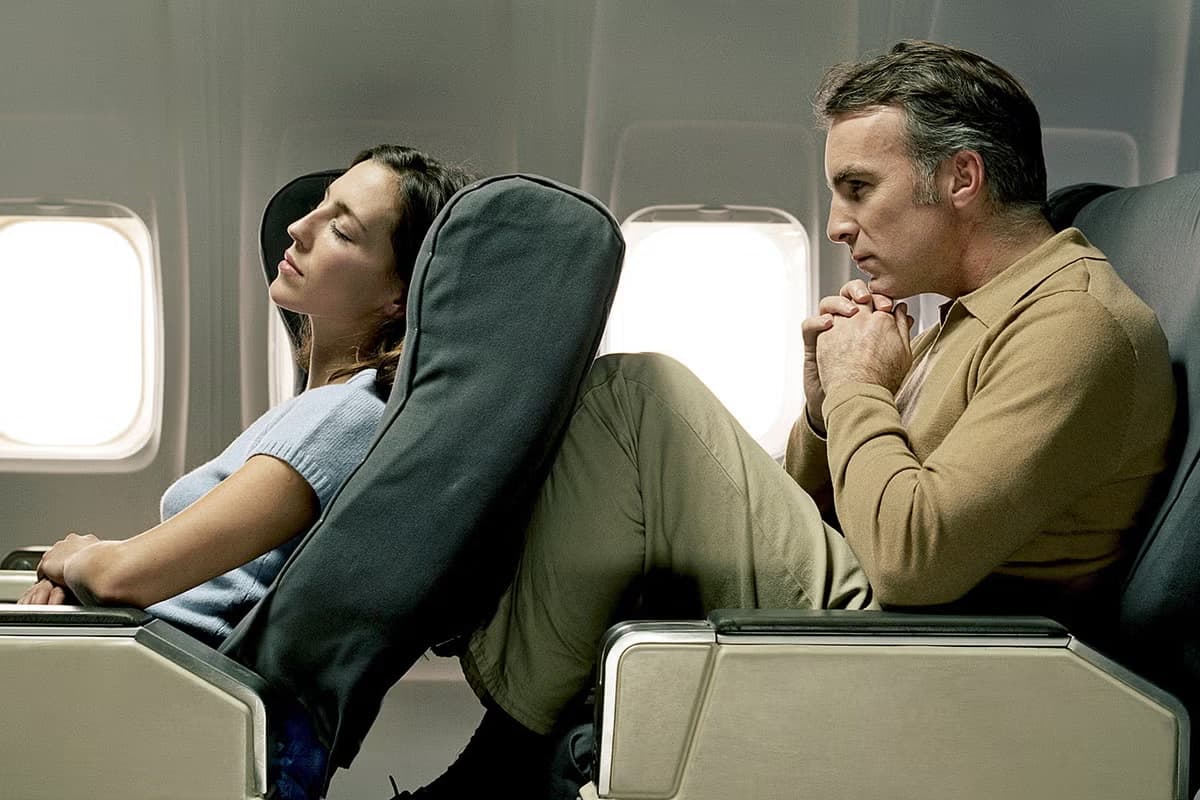If you’re getting back into the business of jet-setting to various locations for work, you’re not the only one. According to the U.S. Travel Association, domestic business travel was expected to reach 81% of pre-pandemic levels in 2022 and 96% in 2023. Although international travel has had a slower rebound in general, it’s also increasing and is predicted to make a full recovery to pre-pandemic levels by 2025.

However, if you’re one of the lucky (or unlucky?) few returning to business travel, you’re probably aware it isn’t the same as it once was. Here are six things you need to know before you hop on the next flight out of town.
1. “Necessary travel” may not actually be that necessary.
Among the many things the past few years taught us is that a whole lot can be accomplished remotely. When the world shut down due to the onset of COVID-19, businesses didn’t stop selling just because they couldn’t seal the deal in person. In many cases, companies can be built and operated remotely. Technology like internal communication apps and the best video conferencing services can be used to connect with co-workers and clients virtually, reducing the need for business travel.
Evaluate when it’s truly necessary to visit clients or attend business conferences and for whom travel is essential. In addition to saving time and money, favoring virtual versus in-person meetups can keep your workforce healthy and reduce the need for leaves of absence due to illness. It can help you lessen your company’s carbon footprint as well, which is great for those eco-conscious businesses out there. [Eliminating travel is one way to drastically cut business costs.]
2. Each city, state and country has its own health requirements.
If you’re traveling out of state for work, you definitely need to check the health requirements for the place you’re traveling to, especially if you’re flying internationally. Each city, state and country has its own COVID-related requirements around the types of health screenings and documents you need to obtain (e.g., negative COVID-19 tests, vaccine passports, digital health passes, etc.) before you can enter – and yes, you need to follow them.
Look up the health-related policies and stipulations for your work destination prior to leaving town. It can also be helpful to find COVID-19 testing centers wherever you’re going beforehand.
If you’re traveling internationally for work, you can easily check COVID-19 travel recommendations for your destination on the CDC’s website.
3. Ah, ye ol’ question: to mask or not to mask?
We’ve all gotten a lot of contradictory information during the pandemic about what we should or shouldn’t be doing, and wearing a mask is certainly something that’s caused many heated debates. Although the CDC has eliminated federal mask mandates, that doesn’t mean you can (or should) just stop masking.
Some cities and states still have masking orders for places like hospitals, long-term care facilities, state government buildings and public transportation. For example, New York City requires people to wear masks on public transit and in taxis and rideshare vehicles. Even if state and local officials don’t require masks, private businesses may insist patrons wear them.
When surveyed about whether they want masks to be required on public transportation, 56% of Americans were in favor, 24% were opposed and 20% were indifferent, according to an April 2022 AP-NORC poll. With such a large set of the population still in favor of some form of public masking, you can expect to see various mask guidelines still in place throughout the U.S.
As a precaution, review your destination’s local masking ordinances and latest health data before traveling. You may also want to consider the COVID-19 case rate of where you’re traveling from and weigh the health risks to the people with whom you’re meeting.
4. Your flight will be canceled.
We don’t want to be Negative Nancy over here, but flights are having a real hard time sticking to their schedules lately. Amidst inconsistent consumer demand and fluctuating airport workforces, many airlines are experiencing significant flight delays and cancellations. Passenger frustration is high, especially when traveling for time-sensitive reasons.
Making things more complicated, each airline handles delays and cancellations differently. For example, some will offer to put you on the next available flight in your ticket class, or you can take the next available flight in a lower class. If your trip is urgent and you choose to go on a flight in a lower ticket class (instead of the business-class or first-class seat you originally booked), it may interfere with your ability to effectively work during the flight.
In case of a delay or cancellation, have a backup plan to ensure you can still accomplish whatever work needs to be done and get to your final destination on time. It can be helpful to budget a little extra travel time into your business trip to account for any inconveniences that may occur.
Airlines are facing staff shortages while flight demand is increasing, so you may need to exercise a little extra patience and compassion when talking with a flight crew to fix any ticketing or flight issues.
5. Your old driver’s license may not be a valid form of ID.
So we got through the COVID-related topics to consider before traveling, but that’s not all that should be top of mind right now. There are a few other critical things to take note of for business travel – for example, the TSA will require every adult air traveler to have a REAL ID-compliant driver’s license or another acceptable form of ID to fly within the United States beginning May 7, 2025.
Traveling with the wrong form of identification can really put a crimp in your business plans, so be sure you have the proper ID on hand. If you’re not sure whether your driver’s license is compliant, a REAL ID-compliant card is marked with a star at the top of the card. You can visit the U.S. Department of Homeland Security’s REAL ID website to find information on where to obtain a REAL ID in your state.
6. Your laptop or phone could be searched.
Another important thing for international business travelers to be aware of is the possibility of a warrantless digital device search at U.S. borders. Last year, the U.S. Court of Appeals for the First Circuit affirmed that U.S. border security officers have the legal right to search travelers’ digital devices, such as laptops and mobile phones, without a warrant.
This policy could pose security threats to some organizations. As such, it may be time to consider cybersecurity risks and guidelines before traveling internationally.
A business credit card can earn you travel-related perks, like frequent flyer miles and discounts on lodging.




